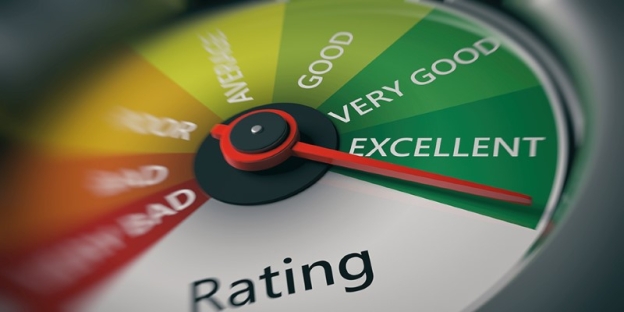How Do You Choose the Best Home Insurance? Start Here
What if your home got damaged and your insurance company didn’t show up when you needed them most? Choosing the right home insurance company isn't just about getting a good deal—it's about getting the proper protection from a provider that will stand by you when something goes wrong. Let’s break it down.
Understand What Home Insurance Covers
Before comparing companies, ensure you understand what home insurance typically covers. Standard policies typically cover the physical structure of your home, your belongings, and liability protection if someone is injured on your property. There's also something called "loss of use" coverage—this helps pay for living expenses if your home becomes unlivable due to a covered event.
But not all policies are the same. Some insurers offer extras, such as water backup coverage or identity theft protection. Others charge extra for things you assume are covered. Reading the delicate print matters.
Know Your Needs Before You Shop
The best insurance company for someone else might not be the best for you. What kind of property do you live in? Do you have expensive electronics, jewellery, or artwork that require additional protection? Is your area prone to flooding, wildfires, or hurricanes?
Consider your lifestyle, the location of your home, and what you'd need to replace in the event of an emergency. This will help you pick a policy that fits—and help you avoid paying for things you don't need.
Compare Financial Strength Ratings
What good is insurance if the company can't afford to pay your claim? Always verify the financial strength of an insurance company before signing a policy. Independent agencies like AM Best, Moody's, and Standard & Poor's provide ratings that tell you how well an insurer is positioned to pay out claims.

A company with a strong financial rating isn’t just safer—it’s often more reliable when it comes to customer service, too. You’re less likely to deal with delays or disputes during stressful times.
Check Customer Satisfaction And Claim Handling
An affordable premium might catch your eye, but what happens when it’s time to make a claim? That’s when the real experience with an insurance company begins. Some insurers make the process smooth and fast, while others leave homeowners waiting for weeks—or even months.
Look at third-party review sites, talk to friends and neighbours, and search for customer service rankings. Companies like J.D. Power release annual studies that rank insurers by customer satisfaction, claim resolution, and overall experience.
Reading a few bad reviews is normal, but pay attention to consistent complaints. Do people say the company delays payments? Denies too many claims? Or are they mostly happy with how things were handled?
Ask About Discounts Without Compromising Coverage
Many companies offer discounts for services such as installing security systems, bundling home and auto policies, or installing a new roof. These discounts can help lower your premium, but don't be tempted to accept a stripped-down policy to save money.
Ask about what you’re giving up in exchange for a lower premium. A good insurance company should help you find savings without leaving you underinsured. Make sure their discounts don’t come with hidden limitations.
Evaluate Digital Tools And Accessibility
These days, most insurers offer apps or online portals. They allow you to review your policy, file a claim, and track its progress from your phone or laptop. Some even utilize AI tools to expedite claims or provide live chat support.
Ask yourself: Do you prefer handling things online, or would you rather speak with someone on the phone? The best company is one that matches your comfort level.
If technology is essential to you, explore how user-friendly their website or app is. On the other hand, if you value personal service, check if they have a local agent you can meet in person.
Consider How Easy It Is To Customize Your Policy
No two homes are exactly alike, and your coverage should reflect that. Look for companies that allow you to customize your policy. Can you increase limits on valuables? Add extra protection for home offices or rental units? Can you include flood or earthquake coverage?
Some insurers are flexible, offering a range of add-ons to help you fine-tune your protection. Others take a one-size-fits-all approach. If your home or lifestyle is unique, avoid companies that make it hard to adjust your coverage.
Know How Claims Are Processed
You don’t want to be figuring out how the claims process works while dealing with a burst pipe or fire damage. Ask potential insurers how their claims process works upfront. How do you file a claim? How long do they typically take to respond? What documentation is needed?

Some companies use adjusters who visit your home in person. Others use remote methods, such as uploading photos or making video calls. Determine whether the claims process is handled in-house or outsourced to a third-party provider.
It helps to know whether the company assigns a dedicated claims representative or if you’re passed from one person to another. The smoother and more transparent the process, the better your experience will be when it counts.
Look At Complaint Ratios
Every insurance company gets complaints, but some get far more than others. The National Association of Insurance Commissioners (NAIC) publishes complaint ratios that indicate the number of complaints a company receives about its market share.
A high complaint ratio can be a red flag, especially if complaints are about denied claims or billing issues. It's a helpful way to identify companies that appear promising on paper but ultimately fall short in reality.
Final Word: Choosing The Right Insurance Is About Trust
Your home insurance company is a partner in your long-term security. You need to trust that they'll be there when you need them, not just when you're paying premiums.
Take your time to research, ask questions, and compare not only prices but also experiences and reputations. Once you find a provider that fits your needs, you'll have peace of mind knowing your home and everything in it are well protected.







